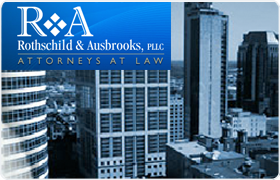Wilson County, TN Bankruptcy & Debt Lawyers
Sponsored Law Firm
-
 x
x

Click For More Info:
-
Rothschild & Ausbrooks, PLLC
1222 16th Ave. South, Suite 12 Nashville, TN 37212» view mapBankruptcy Filing, Chapter 7, Chapter 13 You Are Not Alone. We Can Help.
Our law firm encourages communication. We respond to calls and e-mails promptly. This is your case, and you will be involved every step of the way.
800-966-8531
Georgina Hughes
Litigation, Reorganization, Family Law, Trusts, Federal Appellate Practice
Status: In Good Standing Licensed: 16 Years
Timothy Davis
Trusts, Family Law, Insurance, Reorganization
Status: In Good Standing Licensed: 26 Years
Joshua Michael Robbins
Juvenile Law, Litigation, Estate Planning, Credit & Debt
Status: In Good Standing Licensed: 12 Years
Timothy Art Davis
Trusts, Family Law, Insurance, Reorganization
Status: In Good Standing Licensed: 26 Years
Susan Carol Parkes
Family Law, Reorganization, Bankruptcy, Bankruptcy & Debt
Status: In Good Standing Licensed: 45 Years
Katherine Everette
Bankruptcy, Banking & Finance, Business & Trade, Corporate
Status: In Good Standing Licensed: 24 Years

 Mary Ausbrooks Nashville, TN
Mary Ausbrooks Nashville, TN Contact UsCall or Email
Contact UsCall or Email LinkedIn
LinkedIn
